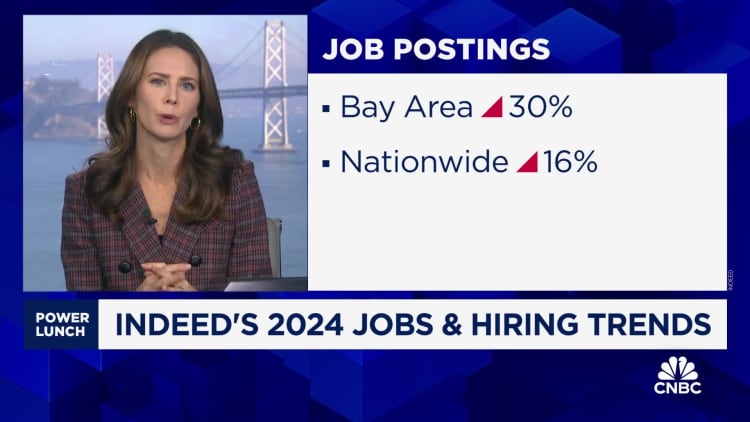Fangxianuo | E+ | Getty Images
There can be ample roadblocks during a job hunt, including so-called “ghost” jobs.
These can be phantom listings for jobs that don’t exist, or those posted such a long time ago that it seems the job may not be available.
Luckily, there are ways for job seekers to sidestep the challenges of a potential specter job and raise their odds of landing a gig, according to career experts.
More from Personal Finance:
This is the easiest way for newbies to start investing
FAFSA ‘fiasco’ may trigger decline in students going to college
The top reason 1 in 3 expats may renounce U.S. citizenship
Ghost jobs aren’t a nascent phenomenon, but a hot pandemic-era job market turbocharged some seemingly bad behavior.
Ghosting among job seekers and employers, for example, has become more prevalent as parties more frequently go silent during the hiring process.
Recent labor market dynamics also brought terms like the great resignation, quiet quitting and loud quitting into the collective lexicon. Such “fun” new names belie the fact that these trends existed — albeit perhaps with less prevalence — before the pandemic, said Mandi Woodruff-Santos, a career coach.
10% had jobs open at least six months
Still, long-unfilled jobs seem to be ample, creating headaches for applicants.
For example, a basic search on LinkedIn showed about 1.8 million jobs had been posted on the site over a month ago, according to data available Friday.
In 2022, 10% of hiring managers reported having job ads that had been available for six months or more, according to a poll by Clarify Capital.
There’s a “good chance” jobs posted online for longer than two months are ghost jobs, wrote Aaron Case, a senior content writer at Resume Genius.

As a former hiring manager, Woodruff-Santos has seen firsthand why ghost jobs may exist: For example, a media company might simultaneously post ads for “senior editor” and “associate editor” roles — even though, in reality, the company only has one available job.
The strategy helps companies broaden the net of talent drawn to each role, she said — though it creates a ghost job in the process.
“It takes time” for workers to apply online, said Woodruff-Santos, founder of MandiMoney Makers. It’s “super frustrating and a horrible experience in some cases.”
Recruitment challenges are a culprit, as well.
A recent ZipRecruiter survey showed 57% of employers lacked qualified candidates, for example. And 41% failed to fill a vacancy in the prior six months because candidates wanted more pay than the business could offer, the poll found.
Employers may also leave “dead-end” posts online to give the perception their company is growing and to collect resumes in the event a future role opens up, Case said.
The ‘secret sauce of job searching’
Sturti | E+ | Getty Images
As one firewall, workers who see an attractive listing on an online job aggregation site should check to ensure the ad is listed simultaneously on an employer’s dedicated online job portal, Case said. Additionally, if the firm is still hiring, it may have recently posted about the job on its social media feeds, he said.
There are instances in which it might still make sense for job seekers to apply online for a position posted months ago — especially for candidates who are especially interested in a role for which they’re also a great fit, said Woodruff-Santos.
That’s because there’s a chance the hiring process has been prolonged due to a dearth of qualified applicants, or that the business might contact an applicant later if a position becomes available, she said.

However, online applications only “scratch the surface” when it comes to maximizing one’s odds of finding a new job, she said.
Building personal relationships is the most powerful tool at job seekers’ disposal, she added.
That may be leveraging contacts like friends, family, former colleagues and others who can refer you to a manager at a prospective company; or by putting yourself in environments like conferences, meetups, seminars and trainings to meet people who may have opportunities for you now or in the future.
“It’s about putting yourself in the space where you can get lucky, where you can run into someone on an elevator who may know someone,” Woodruff-Santos said. “This is the secret sauce of job searching,” she added.
“The real goal you should have is to build such a great reputation in your industry and build so many relationships that people come to you before you even need a job,” she said.

